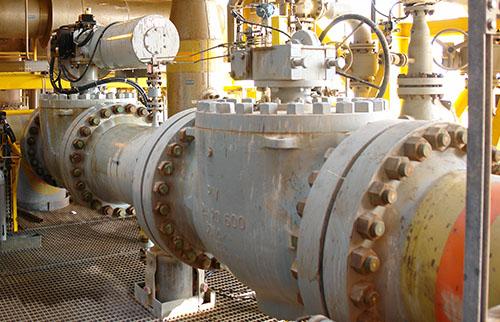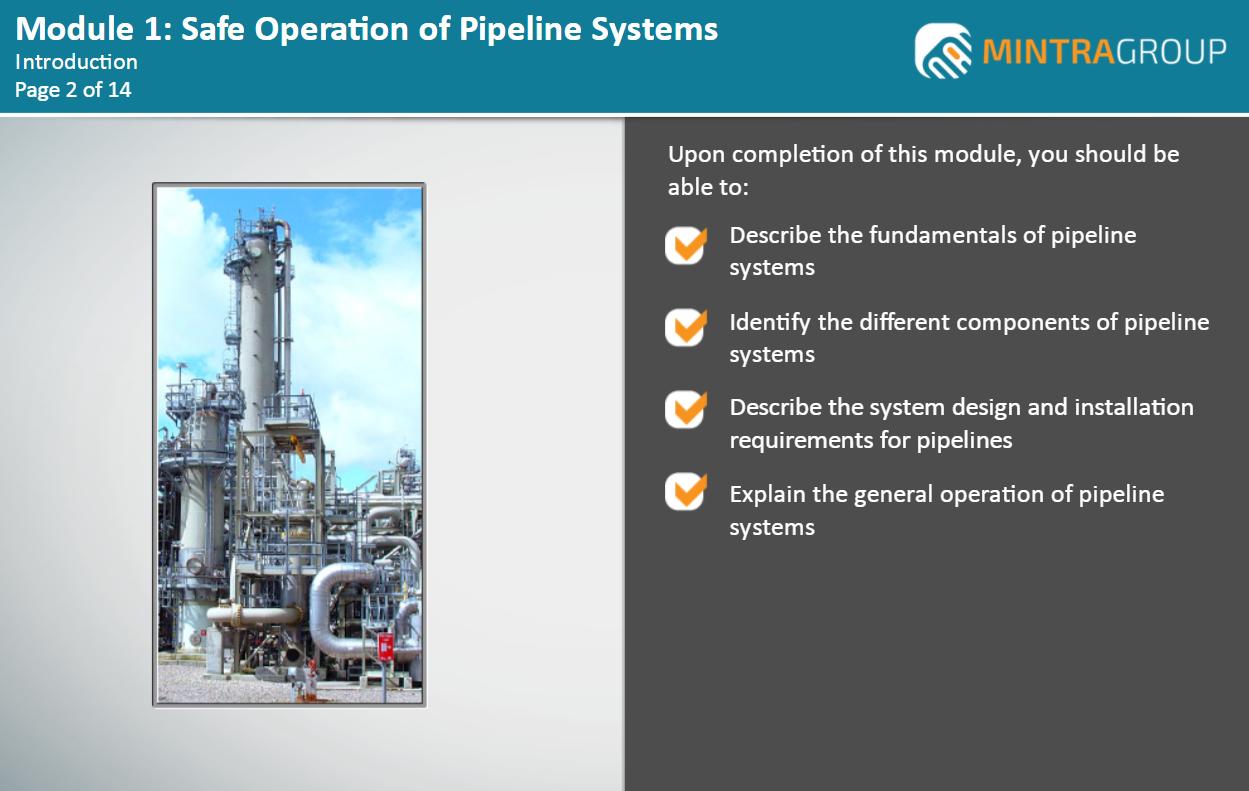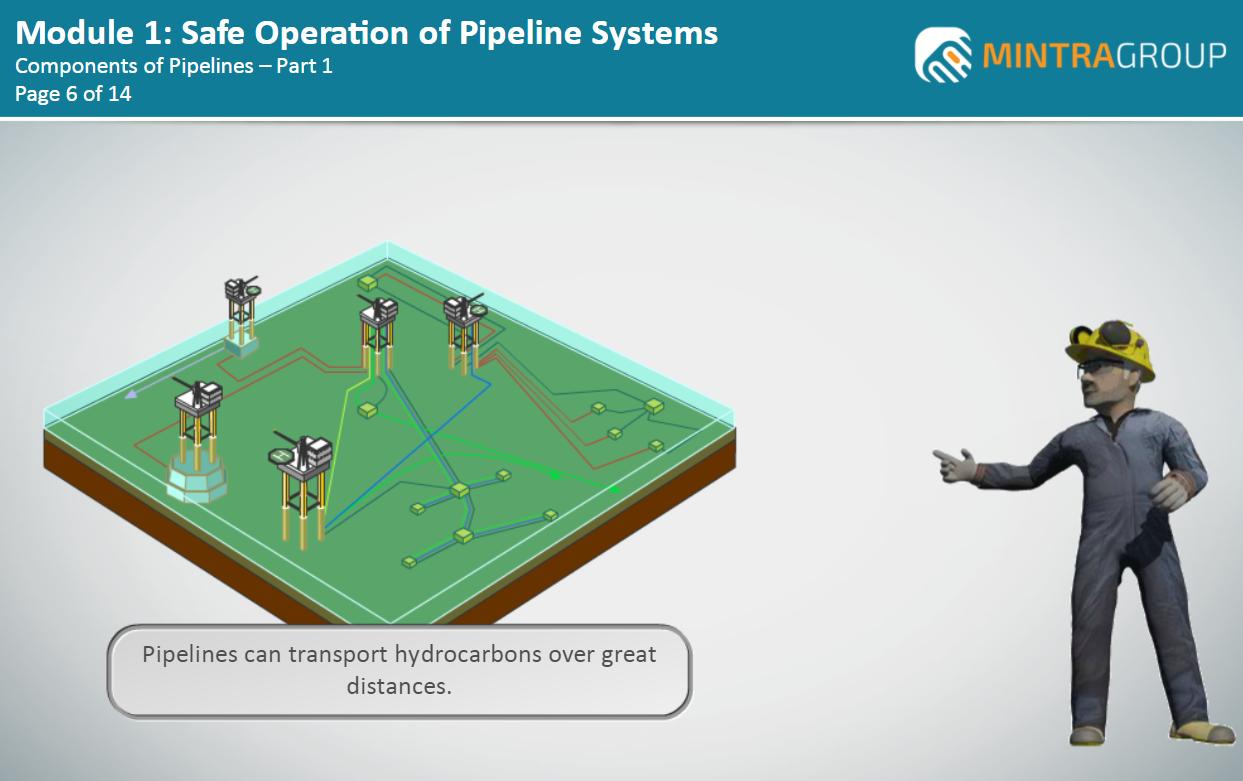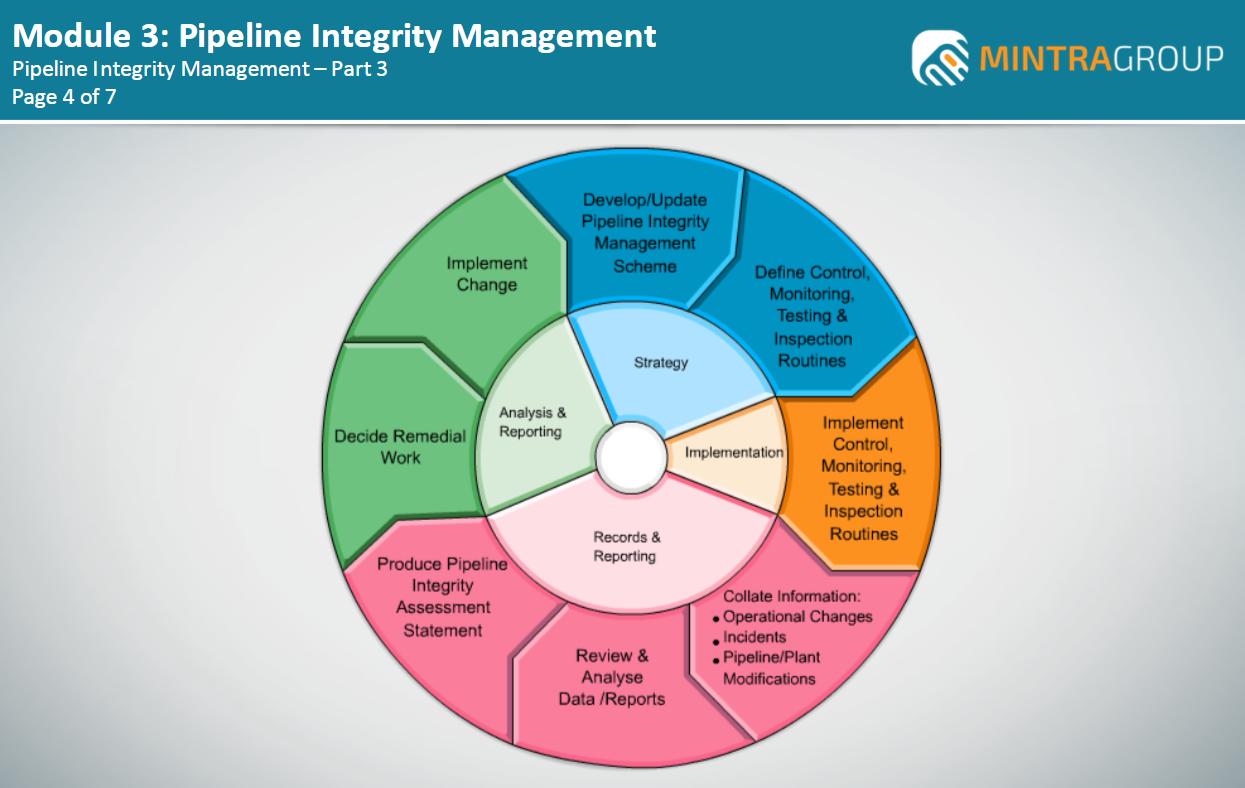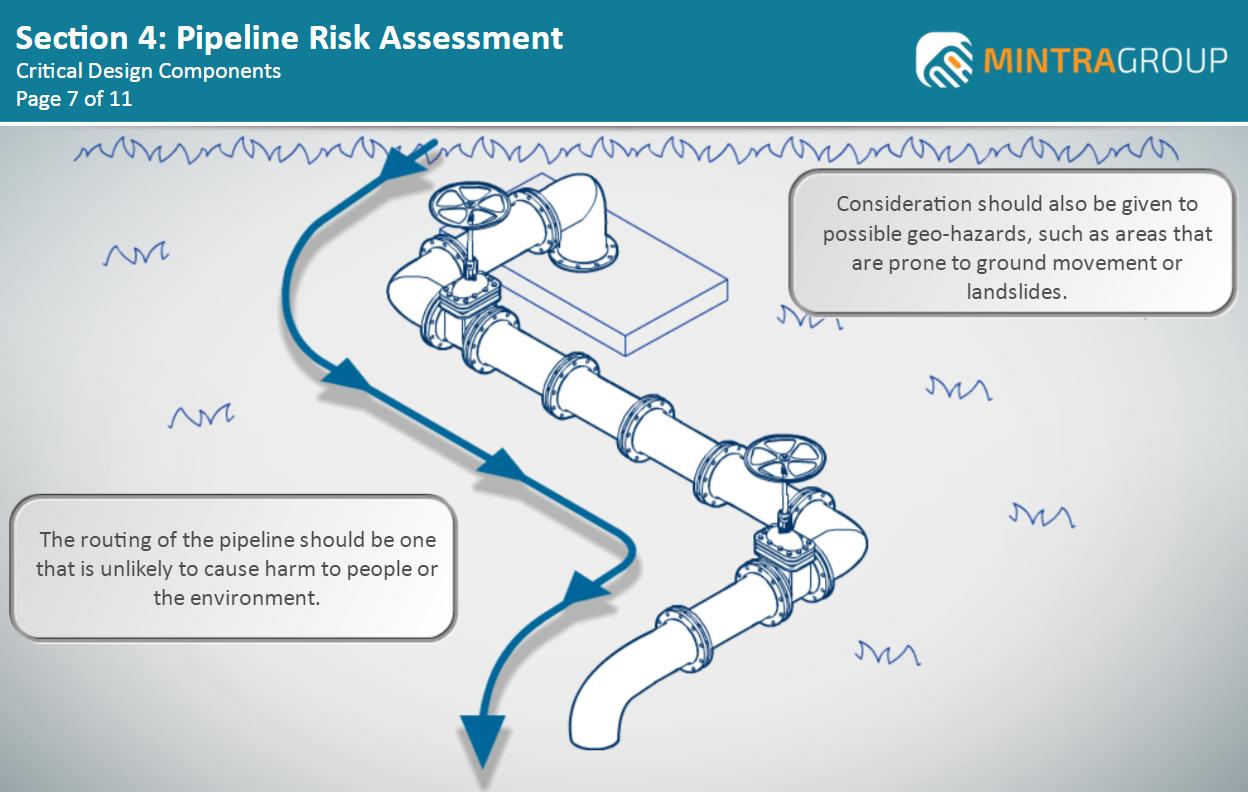Buy and assign to
multiple learners
Instant access
via email link
Instant certificate
via email
Further Information - Pipeline Integrity Training
Description
Who is the course for?
This Pipeline Integrity Training course is aimed at individuals who are required to work with pipelines in the oil and gas industry, on- or offshore.
Is previous experience required?
You do not need prior knowledge or experience to complete this course and it is assumed that you are competent in your designated role.
How will the course benefit me?
Pipelines are a critical component of the oil and gas industry, carrying inside them the revenue-earning production fluids. This course will give you an understanding of the people, processes and systems in place to protect pipelines and keep them flowing.
The knowledge gained in this course will help you to understand the importance of pipeline integrity and to play your part in maintaining it. It will also introduce the types of repair carried out on pipelines on- and offshore.
How will the course benefit my company?
By ensuring that you understand pipeline integrity you can contribute to keeping your company's operations running smoothly and to protecting against pipeline hazards.
What standards are referenced in the course?
This course does not refer to specific legislation or standards but is written to current HSE guidelines and industry best practice.
Is there an assessment?
Once you have completed the course, you will be asked a series of questions to check your knowledge and understanding. These are based on the learning objectives for the course and have a pass mark of 80%.
Learning Objectives
• Describe the fundamentals of pipeline systems
• Identify the different components of pipeline systems
• Describe the system design and installation requirements for pipelines
• Explain the general operation of pipeline systems
• Identify the key responsibilities of the Pipeline Operator
• Identify the legal requirements of the Pipeline Operator
• Identify and describe the different types of records that are maintained for pipeline systems
• Describe the reporting process that should be followed
• Describe pipeline integrity management
• Explain how pipeline integrity is managed
• Describe the pipeline integrity management process
• Explain how pipeline integrity management is used during the project stages
• Explain how pipeline integrity management is used during the operational phase
• Identify the purpose of pipeline risk assessment
• Describe the different steps in the risk assessment process
• Identify the different consequences of pipeline failure
• Identify the critical design components when laying pipelines
• Identify the reasons for pipeline failure
• Describe risk mitigation measures
• Identify the different types of pipeline features
• Identify the different means of feature identification
• Explain the procedure that operators must follow when a feature is discovered
• Explain the importance of pipeline inspection
• Identify the different types of inspection techniques used onshore and offshore
• Identify the different categories of feature assessment
• Explain how inspection data can be used in feature assessments
• Explain how a pipeline repair is carried out
• Identify the different methods that are used to repair pipelines onshore
• Identify the different methods that are used to repair pipelines offshore
• Explain the importance of pipeline repair records
Assessment
Exam in the e-learning course
System Requirements
- Internet access - users will need a device with a web browser and internet connection
- System - runs on computers, tablets and mobile devices using Windows 7 and above and MAC OS devices running IOS 11 and above
- Browsers - Edge, Chrome, Firefox and Safari
- Minimum browser size – none
- Audio – requires device speaker or headphones
Reviews
Insights & News
At Mintra, we're so much more than just a team—we're a force driving innovation and excellence in maritime training across Europe.
We’re excited to be taking the stage at one of Europe’s leading showcases of organisational learning.
We are delighted to share the exciting news that our People and Culture team has been shortlisted for the prestigious cHeRries Awards!
